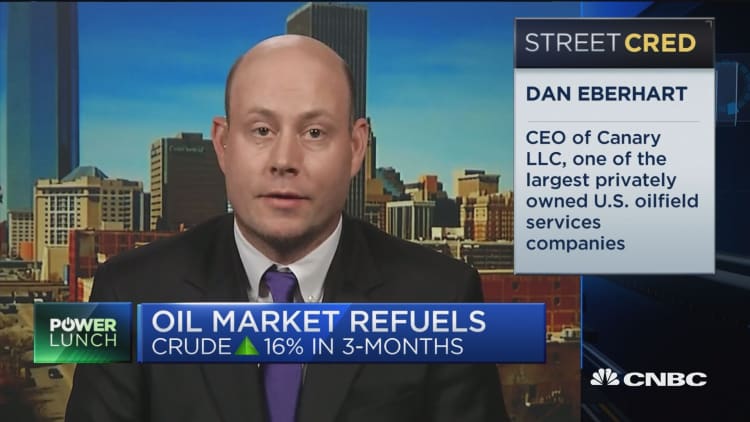Brent crude oil eased on Tuesday after earlier jumping above $80 a barrel, supported by concern that falling Venezuelan crude output and a potential drop in Iranian exports could further tighten global supply.
Crude is trading near the highest since late 2014, underpinned by a supply-cutting deal among the Organization of the Petroleum Exporting Countries plus Russia and other non-members, and strong global demand.
Brent crude, the global benchmark, finished the day's trading up 35 cents at $79.57 a barrel. The contract earlier hit $80.49, nearly topping last week's best price since November 2014.
U.S. crude was ended the session down 11 cents at $72.13, having earlier traded at $72.83, its highest since November 2014.

"The solid global economy, selected supply disruptions and the upbeat market mood in particular in oil frame a positive environment," said Norbert Ruecker, head of commodities and macro research at Julius Baer.
The U.S. government imposed new sanctions on Venezuela following Sunday's re-election of President Nicolas Maduro, a move that analysts say could further curb the country's oil output already at its lowest in decades.
"The impact is more fear-related that well see more barrels come off the market," said Rob Haworth, senior investment strategist for U.S. Bank Wealth Management.
Concern about a potential drop in Iranian oil exports following Washington's exit from a nuclear deal with Tehran and the threat of U.S. sanctions is also supporting prices.
On Monday, the United States demanded that Iran make sweeping changes - including dropping its nuclear program to pulling out of the Syrian civil war - or face severe economic sanctions. Iran dismissed Washington's ultimatum and one senior Iranian official said it showed the United States is seeking "regime change" in Iran.
Venezuela and Iran are members of OPEC, which with its allies has curbed production since January 2017 to get rid of a supply glut that in mid-2014 led to a price collapse.

Due in part to the involuntary drop in Venezuela's output, OPEC is over-delivering on the agreement. Saudi Arabia and other major OPEC producers could in theory add more supply, but have yet to do so.
The OPEC-led supply curbs have largely cleared an inventory surplus in industrialized countries based on the deal's original goals, and stocks continue to decline.
U.S. crude stockpiles are forecast to have declined by 2.8 million barrels last week, a third straight weekly fall. The American Petroleum Institute's inventory report for the period is due at 4:30 p.m. ET (2030 GMT).
Limiting the upward pressure on prices is growing supply in the United States, where shale production is forecast to hit a record high in June.
— CNBC's Tom DiChristopher contributed to this story.

